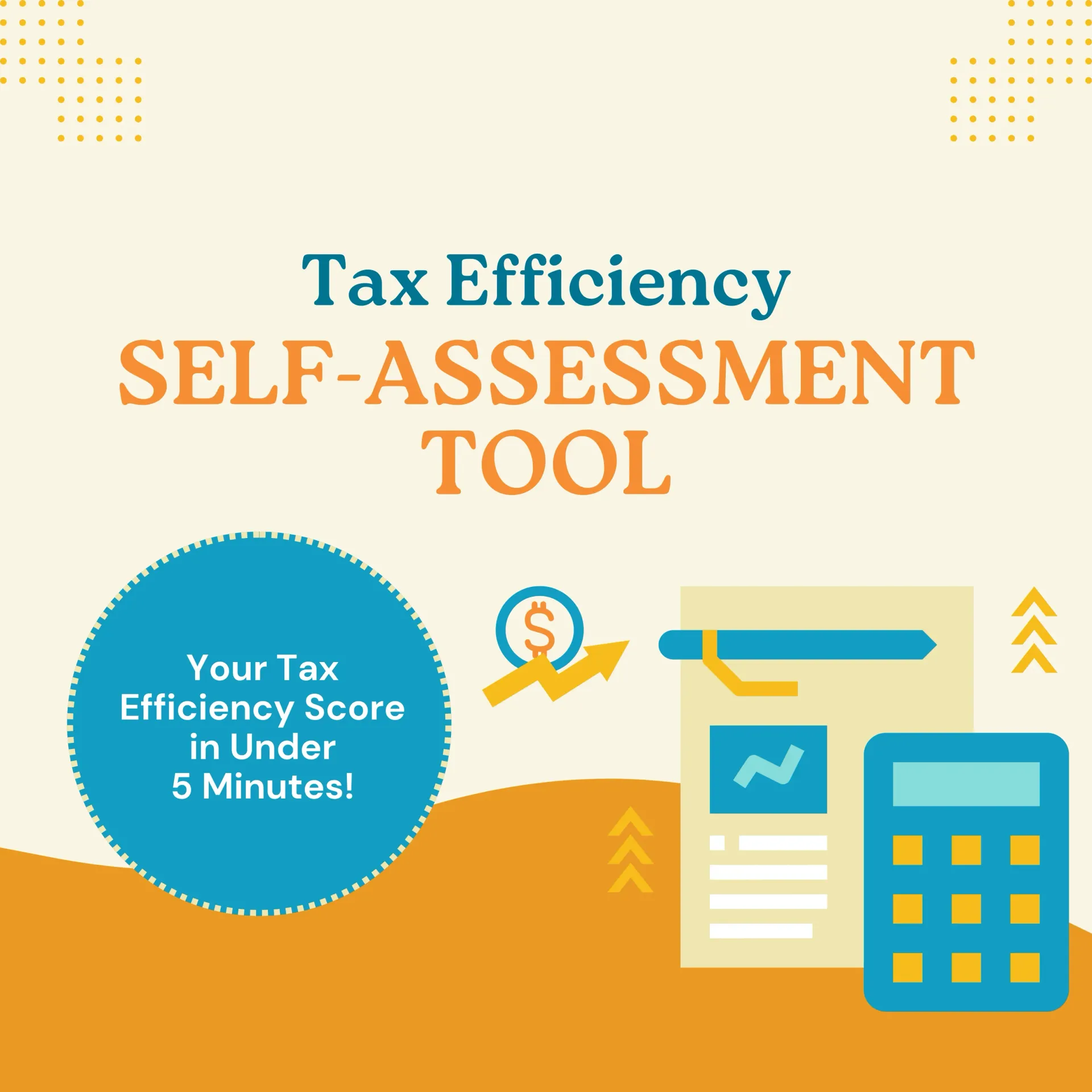The Ultimate Guide to Tax Implications and Strategies for Real Estate Professionals and Real Estate Investors

For many real estate professionals and investors, navigating the tax code feels like a maze. There are endless twists and turns that leave you with more questions than answers. You might be thinking: What deductions and credits am I eligible for? Should my business be taxed as a partnership or S-Corp? What about Section 1031, your overall tax planning strategies, remaining compliant with tax laws and regulations, and so on? There is so much to consider.
When you think about real estate investing, you’re probably thinking about building lasting wealth and creating a legacy for yourself, your business, and your family. Nowhere in that thought process are you interested in making Uncle Sam richer. When we prepared this guide, we thought of you. Whether you’re a seasoned real estate developer, a newcomer to the world of investing in vacation home rentals, or a wholesaler, we’ll provide you with the knowledge to help you answer all these questions and more. In this article, we won’t hold anything back. From maximizing every deduction possible, to leveraging depreciation to your advantage, and educating you on 1031 exchanges, we’ve got you covered.
Tax Strategies for Real Estate Developers
Eligible Deductible Expenses
Real estate developers have several deductible expenses that can significantly reduce taxable income. These include:
- Interest on loans
- Property taxes
- Insurance premiums
- Development costs such as architectural and engineering fees
EXAMPLE: Let’s say you’re a real estate developer who incurs $110,000 in loan interest, $20,000 in property taxes, and $25,000 in insurance premiums, you can deduct these expenses from your taxable income. To sweeten the pot, developers can deduct costs related to marketing, legal fees, and office expenses. These deductions not only lower your taxable income but also provide a clearer picture of the project's profitability. It's important to always maintain meticulous records of all expenses so the IRS isn’t questioning your deductions later down the road.
Depreciation and Cost Segregation
Depreciation allows developers like you to recover the cost of your property over time. Cost segregation accelerates depreciation deductions by segregating personal property from real property. According to the IRS, this method can lead to substantial tax savings by front-loading depreciation into the early years of property ownership.
EXAMPLE: Suppose you spent $2 million on a commercial property; by using cost segregation, you could allocate some of the costs to personal property, allowing you to depreciate those costs faster and save on your taxes. This method allows you to depreciate over five to seven years instead of 39 years.
This strategy works well for large-scale projects that require significant investments in capital additions such as equipment and fixtures. Accelerating depreciation boosts the cash flow of your projects and helps you reinvest in new projects faster. However, it's crucial to work with a qualified tax professional to conduct a proper cost segregation study to ensure your compliance with IRS rules and regulations.
Capital Gains and 1031 Exchanges
When you sell commercial real estate, your profits are generally taxed as capital gains. If they’re long-term capital gains (assets held for more than one year), the tax rates for 2024 are 0%, 15%, or 20%; contingent on income requirements of course.
Section 1031 of the IRS Tax Code allows for a deferral of capital gains tax if the proceeds are reinvested in like-kind property. This strategy is beneficial for developers looking to expand their portfolio without the immediate tax hit. Like-kind property includes:
- Commercial property such as an office building
- Land
- Industrial properties
- Multifamily buildings
EXAMPLE: If you sell a property for $2 million and reinvest the entire $2 million selling price into a similar property, you can defer capital gains tax on that amount, resulting in a zero-tax liability scenario. It's important to note that you must reinvest the entire selling price to defer the entire gain. Any portion of the selling price not reinvested in like-kind property will be considered as "boot" and will be taxable immediately. This move defers capital gains tax, enabling you as the real estate developer to leverage your investment more effectively without the immediate tax hit.
Utilizing 1031 exchanges can provide developers with significant tax deferral benefits, but the process must be meticulously planned and executed. Unfortunately, there are strict timelines and regulations that must be followed, such as identifying the replacement property within 45 days and completing the exchange within 180 days. If you fail to follow the rules it will disqualify you from the exchange altogether.
Tax Considerations for Real Estate Investors
Passive vs. Active Income
Understanding the distinction between passive and active income is pretty important.
Passive income from rental properties is not subject to self-employment taxes. However, passive activity losses are not beneficial to you, the taxpayer, because passive activity losses cannot offset your non passive or active income. The exception is if your adjusted gross income (AGI) is below $150,000, you can elect to deduct $25,000 in losses.
Active income derived from more hands-on activities might be subject to self-employment taxes. For instance, rental income from a property managed by a professional management company is considered passive, while income from flipping houses is considered active.
Real estate investors should be aware of the IRS's criteria for classifying income. Passive income is typically derived from rental activities, which do not require the investor's material participation. In contrast, active income involves significant involvement in the property's operations, such as managing renovations or directly overseeing the day-to-day operations.
Rental Property Deductions
Investors can deduct expenses related to property management, maintenance, and repairs. Mortgage interest, property taxes, and insurance premiums can also be deductible. These deductions can significantly lower taxable income.
EXAMPLE: As an investor, if you earned $50,000 in rental income but incurred $10,000 in mortgage interest, $5,000 in property taxes, $3,000 in insurance, and $7,000 in repairs, your taxable income from the property would be reduced to $25,000.
In addition to these common deductions, investors can also deduct expenses related to advertising, legal and professional fees, travel expenses related to property management, and depreciation. It's important to keep detailed records and receipts for all expenses to substantiate deductions in case of an IRS audit.
Depreciation and Recapture
A property is sold, depreciation recapture rules apply, taxing the portion of the gain attributable to depreciation at a higher rate.
EXAMPLE: As an investor, if you claim $100,000 in depreciation on a property and sell it for a $300,000 gain, the $100,000 will be recaptured and taxed at a higher rate, while the remaining $200,000 will be taxed at the capital gains rate.
To mitigate the impact of depreciation recapture, investors can consider strategies such as 1031 exchanges to defer capital gains and recapture taxes. Additionally, investors can plan the timing of their sales to coincide with years of lower taxable income, potentially reducing the overall tax burden.
Commercial Property Owners and Tax Deductions
Depreciation of Commercial Property
Commercial property owners can depreciate their property over 39 years. This deduction can offset rental income, helping you reduce your taxable income.
EXAMPLE: a commercial property worth $1.85 million would allow an annual depreciation deduction of approximately $50,000, which can significantly reduce your taxable income over time.
It’s no surprise that depreciation is a powerful tactic for commercial property owners, providing a non-cash deduction that reduces taxable income while maintaining cash flow. You should always work with a tax professional to accurately calculate depreciation and ensure compliance with IRS guidelines.
Leasehold Improvements
Improvements made to leased property, such as renovations or upgrades, can be depreciated over the lease term or 15 years, whichever is shorter. This offers additional tax benefits by spreading the cost of improvements over several years.
EXAMPLE: if you’re a commercial property owner that spends $220,000 on leasehold improvements with a 10-year lease term, you can deduct $22,000 annually.
Leasehold improvements can include a wide range of expenses, such as installing new lighting, upgrading HVAC systems, or renovating office spaces. Property enhancements such as these not only boost your property’s value but can also provide you substantial tax benefits through depreciation.
Business Expense Deductions
Commercial property owners can deduct various business expenses, including utilities, property management fees, and office supplies. These deductions help lower overall taxable income.
EXAMPLE: if you spend $15,000 on utilities, $10,000 on property management, and $5,000 on office supplies, these expenses can be deducted from your rental income.
Commercial property owners can deduct expenses related to security services, landscaping, insurance, and legal fees. It’s important to note that maintaining detailed records of all expenses is crucial to maximizing deductions and ensuring compliance with tax regulations.
Tax Strategies for Vacation Rental Owners
Short-term Rental Income Reporting
Income from short-term rentals, where the average stay is less than 7 days (such as those rented through Airbnb or VRBO), must be reported to the IRS. The tax treatment for vacation rentals depends on the rental period and the personal use of the property.
To determine whether a property is considered a "rental property" or a "personal residence" for tax purposes, certain rules apply. If the property is rented out for more than 14 days and used personally for less than 10% of the total rental days, it qualifies as a rental property.
Personal Residence Classification:
- If you use the property for personal purposes for more than 10% of the total days it is rented out or more than 14 days (whichever is greater), it is classified as a personal residence.
- For personal residences, deductions for rental expenses are limited to the amount of rental income. This means you cannot use rental expenses to create a tax loss if the property is classified as a personal residence. However, any unused expenses can be carried forward to future years when you might have more rental income to offset them.
Rental Property Classification:
- If the property qualifies as a rental property, you can deduct rental expenses such as mortgage interest, property taxes, maintenance, and depreciation against the rental income.
- By understanding and correctly applying these classifications, vacation rental owners can optimize their tax strategies and ensure compliance with IRS regulations.
EXAMPLE: Let's say your vacation rental is rented for 200 days and personally used for 15 days. Since personal use is less than 10% of the total rental days, it qualifies as a rental property, and you can deduct rental-related expenses accordingly.
Remember to always keep detailed records of both personal and rental use, as well as all related expenses, to substantiate your deductions in case of an IRS audit.
Personal Use vs. Rental Use Rules
Owners must keep detailed records of personal and rental use. Expenses must be allocated between personal and rental use. Only the portion of expenses attributable to rental use is deductible.
EXAMPLE: if your vacation rental incurs $10,000 in expenses and is rented 75% of the time, $7,500 of the expenses can be deducted.
Properly allocating expenses is critical for maximizing deductions and avoiding potential problems with the IRS. You should always maintain a detailed calendar of rental and personal use days and keep receipts for all expenses.
Deductible Expenses
Expenses such as advertising, cleaning, and maintenance are deductible. These deductions can significantly reduce taxable rental income, leading to substantial tax savings.
EXAMPLE: as a vacation rental owner, you spend $2,000 on advertising, $1,500 on cleaning, and $3,000 on maintenance, these amounts can be deducted from rental income.
To further add, vacation rental owners can also deduct expenses related to property management fees, utility costs, insurance premiums, and repair costs. Making sure to always keep accurate records of all expenses is essential for maximizing deductions and ensuring compliance with tax regulations.
REITs: Tax Implications and Strategies
Dividend Taxation
REITs (Real Estate Investment Trust) must distribute at least 90% of their taxable income to shareholders. These dividends are typically taxed at the individual shareholder's ordinary income tax rate, not the corporate tax rate. This structure allows REITs to avoid double taxation on earnings.
EXAMPLE: if a REIT distributes $1 million in dividends, shareholders will report these dividends as ordinary income on their tax returns.
Investors in REITs should be aware of the tax implications of receiving dividends. While the dividends are taxed at ordinary income rates, they provide a steady income stream and can be an attractive investment for those seeking regular income.
REIT-specific Tax Rules
REITs are subject to specific tax rules that differ from other corporations. They must adhere to income and asset tests to maintain their tax-advantage status. Proper structuring and compliance are critical for maximizing tax benefits. For example, an REIT must derive at least 75% of its gross income from real estate-related sources to qualify for tax benefits.
REITs must also comply with strict operational requirements, such as maintaining a diversified portfolio and distributing a high percentage of income to shareholders. Failure to comply with these requirements can result in the loss of REIT status and significant tax liabilities.
Structuring Investments for Tax Efficiency
Investing in REITs can offer tax advantages, such as the ability to defer capital gains through reinvestment plans. Understanding these strategies can help you optimize your portfolio and minimize tax liability. For instance, investors can use dividend reinvestment plans (DRIPs) to defer capital gains taxes by reinvesting dividends into additional shares of the REIT.
As an investor, you should also consider the impact of state taxes on REIT dividends. Some states may have different tax treatments for REIT income, which can affect the overall tax liability. Consulting with a tax professional can help investors navigate these complexities and develop a tax-efficient investment strategy.
Tax Planning for Real Estate Wholesalers
Ordinary Income vs. Capital Gains
Wholesalers often face the challenge of their profits being taxed as ordinary income rather than capital gains. This can result in higher tax rates, significantly impacting profitability. Proper planning and structuring can mitigate these effects.
EXAMPLE: you, as the wholesaler, earns $100,000 in profit, it will be taxed at their ordinary income tax rate, which could be as high as 37%, rather than the lower capital gains rate.
To reduce the tax burden, wholesalers can explore strategies such as forming an S-Corp or LLC. These business structures offer flexibility in how income is taxed and can provide opportunities for tax savings through salary distributions and dividends.
Business Structure
Choosing the right business structure, such as an LLC or S-Corp, can provide significant tax advantages. Electing to classify your business as an S-Corp can help you save on self-employment taxes. Additionally, it's important to note that distributions from an S-Corp are taxed as ordinary income tax rates, whereas qualified dividends from a C-Corp are taxed at lower rates.
When deciding which business structure is right for you, you must think about your circumstances and goals. It’s always best to consult with a tax professional that understands tax implications for real estate wholesalers so they can help you determine the best structure for your business.
Deductible Business Expenses
Wholesalers can deduct various business expenses such as marketing, transportation, and office supplies. Keeping detailed records of these expenses is crucial for maximizing deductions and minimizing tax liabilities.
Example: If a wholesaler spends $5,000 on marketing, $3,000 on transportation, and $2,000 on office supplies, these amounts can be deducted from their taxable income.
Wholesalers can also deduct expenses related to lead generation, networking events, and continuing education. These expenses are essential for growing the business and can provide valuable tax benefits.
However, it's important to understand the limitations of offsetting losses through depreciation deductions. While higher depreciation can result in higher losses, these losses cannot always be fully offset against active income, depending on the level of participation in the activities.
Example: Suppose you have W2 income of $180,000, a rental loss of $50,000 from Property A, and rental income of $30,000 from Property B.
- Passive Loss Limitation: Since rental activities are generally considered passive, passive losses can only offset passive income. In this example, you can offset $30,000 of the loss against the $30,000 rental income. The remaining $20,000 loss is a suspended loss and will be carried forward to future years and cannot offset your W2 income.
- Exception: you could offset the entire $50,000 loss only if you were able to qualify as a real estate professional. The rules to qualify as a real estate professional are strict, and typically, someone with a full-time job will not meet these requirements.
By understanding these limitations and rules, wholesalers can better plan their tax strategies and ensure compliance with IRS regulations. Working with a qualified tax professional can help navigate these complexities and maximize tax benefits.
The StraightTalkCPAs Team is Here to Help You
Diving straight into the real estate world with the right strategic tax partner can help you build and keep your wealth. And that’s what we’re all about. Whether you’re an investor, vacation rental owner, member of a REIT, wholesaler, or developer, we have the knowledge and expertise to help you navigate the real estate market the right way.
At StraightTalkCPAs, we specialize in providing tailored tax strategies for real estate professionals. Our team of experts is dedicated to helping you maximize your profits and minimize your tax liabilities. Don't let taxes, compliance concerns, a poor tax strategy or uncertainty about your legal structure hold you back. Contact us today. Reach out by
clicking here or calling us at
732-566-3660.
Discover Your Tax Savings Score in Minutes!


Salim is a straight-talking CPA with 30+ years of entrepreneurial and accounting experience. His professional background includes experience as a former Chief Financial Officer and, for the last twenty-five years, as a serial 7-Figure entrepreneur.




